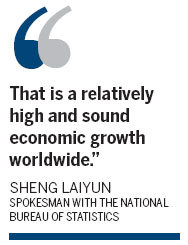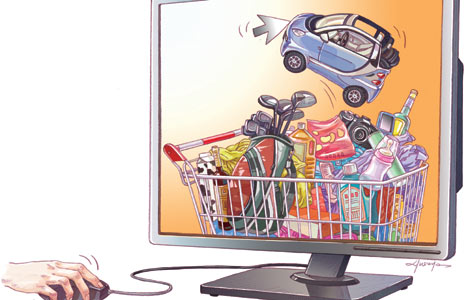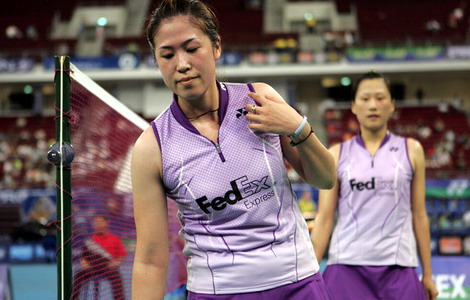 |
|
|
|
|||||||||||
China's cabinet vowed on Friday to strengthen its fine-tuning of the economy as it grew by an annual rate of 8.1 percent in the first three months of 2012, its slowest pace in nearly three years.
"Efforts should be made to leave more room for new policies and prepare for hardships and tests," the State Council said in a statement after a meeting on Friday.
The State Council said the economy is generally in stable shape, but is faced with many difficulties and challenges, Xinhua News Agency reported.
|
 |
It pledged to improve macro-regulation, enhance demand management, and make policies more targeted, flexible and forward-looking, according to the statement.
The government's overtures seemed to have met economists' expectations that more policy adjustments may be on the way to curb the sliding economy, which has been dragged down by simultaneously slowing exports and investments.
Economists said it is too soon to say whether the slowdown could be halted in the second quarter, but the 8.1 percent growth rate in the first three months was close to the government's tolerable bottom line.
The figure was well below the 8.9 percent growth recorded in the last quarter of 2011 and marked the fifth consecutive quarterly slowdown, piling further pressure on Beijing to loosen its monetary policy.
China's economy was cooling sharper than the many forecasts of 8.4 percent growth, but it was still higher than the year's target of 7.5 percent outlined by Premier Wen Jiabao in his government work report in March.
"That is a relatively high and sound economic growth worldwide," said Sheng Laiyun, a spokesman with the National Bureau of Statistics.
According to the NBS, sharply falling exports in the first quarter amid sluggish demand from indebted European countries and the slower-than-expected recovering United States pulled down GDP growth, the NBS said.
Meanwhile, investment - previously the strongest driver of China's economy - contributed 2.7 percentage points to growth, less than the 6.2 percentage points contributed from consumption, the NBS said.
It is an important signal that the economic growth pattern is changing, but it presents a difficult long-term task for the government, said Tang Jianwei, a senior macroeconomic analyst with the Finance Research Center of the Bank of Communications.
"In the coming three months, the government is expected to continually release new policies to boost exports, including extending the export rebate measures and increasing the short-term export credit insurance," Tang said.
Lai Xiaoxuan, deputy general manager of Zhejiang Topsun Holding Group, a producer of outdoor sports equipment, said "raising the tax rebate is one of the most effective ways to make the company more competitive and export more products".
The company's biggest export destination is the eurozone, and the business was hurt by the persisting sovereign debt crisis there.
In terms of fixed-asset investment, the first quarter's 20.9 percent expansion was 2.9 percentage points lower than the whole year's growth in 2011.
It was also much less than the 25 percent recorded in the first three months last year, according to the NBS.
The slowing of fixed-asset investment was mainly affected by tightening housing policies, "which were a result of proactive macroeconomic control", said the NBS spokesman.
"We expect authorities to continue with current policies of easing financing conditions and completing ongoing projects, especially those in the railway, water transfer and power sectors," Huang Yiping, chief economist for emerging Asia at the investment banking division of Barclays Bank, wrote in a research note.
Amid the gloomy economic climate, the industrial output of large Chinese companies - defined as those doing more than 20 million yuan ($3.1 million) in business a year - rose 11.6 percent from a year earlier, compared with 14.4 percent in the first quarter last year, said the NBS.
Zhang Zhiwei, chief economist for China at Nomura Holdings, said the central bank may cut the reserve requirement twice in the coming months to release more market liquidity and support the financing of the industrial manufacturing sector.
The expected easing of monetary policy may boost entrepreneurs' confidence in the future, analysts said.
Contact the writers at chenjia1@chinadaily.com.cn and gaochangxin@chinadaily.com.cn
AP contributed to this story.

|

|

|

|

|

|